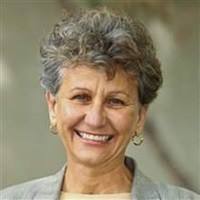WomenLift Health is delighted to announce the appointment of Tamar Manuelyan Atinc to its Global Advisory Board. Members are selected for their recognized leadership, vision, integrity, expertise, and ability to represent the perspectives of women and men from across the global health and development community.
Tamar has over 30 years of experience in international development. Currently a non-resident senior fellow at the Brookings Institution, she was Vice President for Human Development at the World Bank. Over her many years there, she served in multiple regions working to advance country policy and programs fostering human development, poverty reduction, and economic management.
“We are delighted to welcome Tamar to WomenLift Health’s Global Advisory Board,” said President Amie Batson. “Tamar’s deep understanding of the importance of women’s leadership and gender equality in health, coupled with her rigorous approach to policy and implementation, is tremendously important. She will bring critical insights in the fight to improve the everyday lives of women and girls everywhere.”
“Tamar brings a strong passion for women’s empowerment, a conviction about the importance of leadership, and a deep knowledge about development, including the health sector, and the many stakeholders who are part of this landscape. Her deep expertise in development policies and health economics will be a great addition to the Global Advisory Board,” said Board Chair Geeta Rao Gupta.
About WomenLift Health
WomenLift Health is dedicated to expanding the power and influence of women in health and catalyzing systemic change to achieve gender equality in leadership, resulting in better health outcomes for all. WomenLift Health advances equality in health leadership through a range of actions at the individual, institutional, and societal levels. Over the course of the next decade, it will expand to serve women in 25 countries – employing a country-owned and country-led model where the strategy and interventions are led, designed, and executed by and with local partners.


